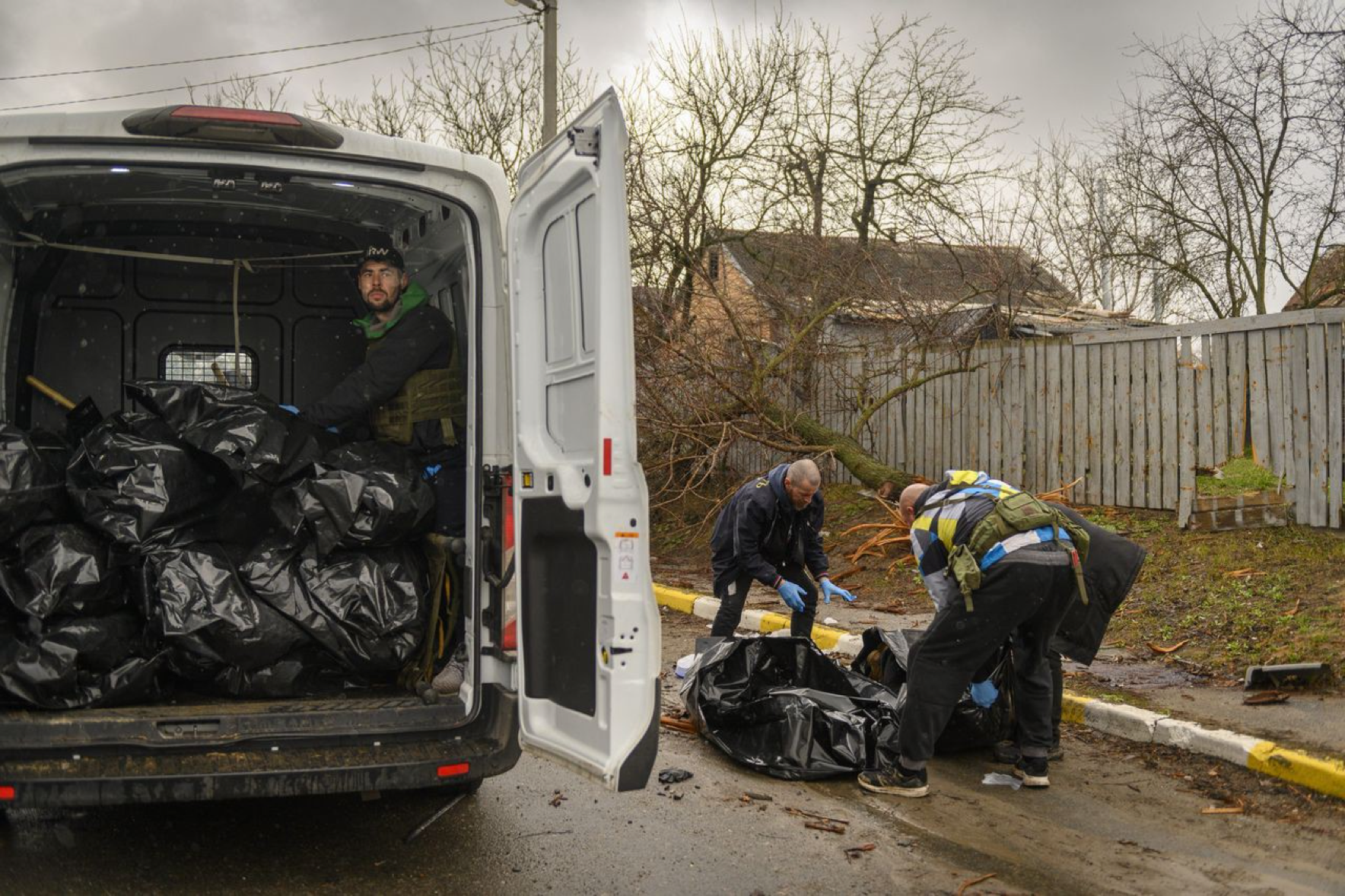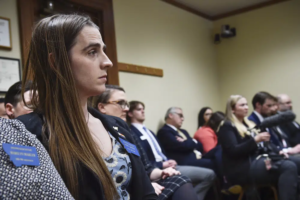Prosecutors name 10 non-commissioned officers and privates they allege mistreated civilians in the Kyiv suburb
Ukrainian authorities filed criminal charges Thursday against 10 individual Russian soldiers accused of taking civilians hostage and mistreating them in the Kyiv suburb of Bucha—the first such move by prosecutors investigating possible war crimes by Moscow’s forces.
All 10 were noncommissioned officers and privates from Russia’s 64th Separate Guards Motor Rifle Brigade, one of the units that took part in the monthlong occupation of Bucha.
In late March, after the Russian military retreated, Ukrainian authorities said they discovered more than 400 dead civilians, their bodies packed in mass graves or left splayed on streets and sidewalks.
Many had bullet wounds and some had their wrists bound behind their backs, Ukrainian authorities said. Some residents of the town also have told investigators and The Wall Street Journal that Russian troops held them captive, denied them food and tortured them.
Since the Russian withdrawal, Ukrainian investigators and prosecutors have been combing Bucha for evidence and interviewing witnesses.
“Our goal is to identify every criminal who committed a crime, for every crime to find its perpetrator,” said Ruslan Kravchenko, Bucha’s chief prosecutor.
Also on Thursday, two days after meeting with Russian President Vladimir Putin in Moscow, United Nations Secretary-General António Guterres spoke in Kyiv about the need for a thorough investigation into alleged crimes in Bucha.
“I fully support the International Criminal Court and I appeal to the Russian Federation to accept to cooperate with the International Criminal Court,” Mr. Guterres said.
Earlier this month, Mr. Putin granted the 64th Motor Rifle Brigade a “guards” honorific. In a Friday announcement on its Telegram channel, Russia’s Ministry of Defense promoted an officer in the unit Azatbek Omurbekov, to colonel.
Ukraine’s Ministry of Defense responded by calling Col. Omurbekov an “executioner, killer, rapist, looter.” Last week, the U.K. sanctioned Col. Omurbekov as part of a group of commanders of front-line units it said had been accused of committing “heinous acts.”
The men charged on Thursday allegedly took part in two incidents, prosecutors said. Ukraine accused them of “ill-treatment of civilians, which is a violation of the laws and customs of war under international treaties.”
In one instance, residents interviewed by Ukrainian prosecutors said a group of eight privates and corporals, carrying out the orders of a sergeant, rounded up civilians, held them hostage in two locations on Bucha’s Anatoly Mikhailovsky Street, and starved and intimidated them.
Prosecutors alleged the Russian soldiers bound the hands of captives, struck them with rifle butts and said they would kill them and their family members.
In a second case, prosecutors said a Russian sergeant took hostages in a private home on Bucha’s Hrushevsky Street. Witnesses told investigators the sergeant forced one man to kneel and, after striking him in the head with a rifle butt, shot at him but missed. The sergeant had been drinking alcohol, witnesses said.
In both cases, civilians were held captive by Russian soldiers for a week or more.
While Ukrainian investigators and prosecutors continue to build cases against the alleged perpetrators of more-serious crimes in Bucha, Thursday’s charges represent the first instances of prosecutors making what they said were positive identifications of those responsible of criminal acts.
Using rosters of Russian military units provided by Ukrainian intelligence agencies, prosecutors have combed social media and shown downloaded photos to witnesses and victims in Bucha in an effort to identify individual soldiers involved in alleged crimes.
Mr. Kravchenko said it was important that “the Russians understand that we can get everyone.”
Ukraine plans to adjudicate all Bucha war-crimes cases in its domestic courts, in the capital Kyiv or the Kyiv region, which would allow for the issuance of international criminal arrest warrants, before presenting a broader case against Russian war crimes to the International Criminal Court, Mr. Kravchenko said.
“We can’t let the criminal go and let him live,” Mr. Kravchenko said. “We must not miss the slightest crime.”
Write to Brett Forrest at brett.forrest@wsj.com




